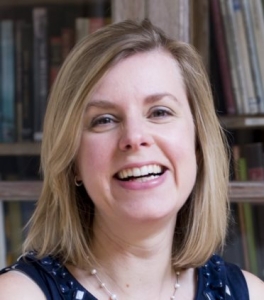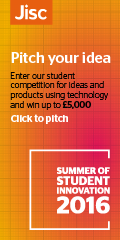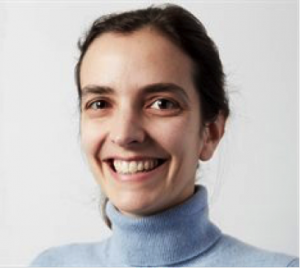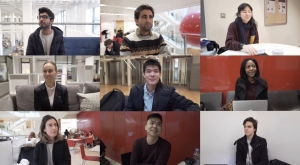
Claudine Provencher
In advance of an Academic Development Programme workshop on this subject next Wednesday (see the booking link at the end of the post), during which participants will explore the concepts of information and digital literacies, how they relate to student learning and how they can be incorporated into courses and programmes, Jane Secker, Copyright and Digital Literacy Advisor in LSE’s Learning Technology and Innovation, shares her views on various aspects of these literacies with Claudine Provencher, Senior Academic Developer in LSE’s Teaching and Learning Centre. This post originates from the TLC blog where you can find further articles on projects, innovative teaching practices and upcoming events at LSE.
What is your definition of information and digital literacies?

Jane Secker
Information and digital literacies are key players in the knowledge, skills and behaviours that underpin learning, and part of what you could call ‘learning literacies’, which also include media and academic literacies. Information literacy is a term that was first coined over 40 years ago and it’s widely used by librarians. Its importance has been recognized by UNESCO as essential for lifelong learning and a human right. It’s about knowing how to find, evaluate, manage and use information in all its forms, and it extends way beyond simply finding the right information to complete an assignment at LSE. It is also about being able to evaluate the information you find and how to use it to construct new knowledge. Meanwhile digital literacy is a more recent term, but the two overlap considerably. Digital literacy is more than just IT skills: it’s about knowing how to use technology appropriately, knowing which sources to trust online and how to manage your digital identity and wellbeing (which means knowing when to switch off technology sometimes!). In both digital and information literacy, ethics are really important, so knowing how to use other people’s ideas appropriately, understanding citation conventions and respecting intellectual property and copyright are significant issues of concern as well.
What are the main challenges involved in integrating information and digital literacies into course curriculum?
One of the biggest challenges is getting time in the curriculum to help students develop these abilities in the context of their studies. Many academic colleagues expect LSE students to have these skills in place when they arrive at LSE, forgetting that our students come from all around the world and may not have learned how to find and evaluate information or use technology for academic purposes. There is also a challenge because the notion that all students are very ‘tech savvy’ persists, despite much evidence to the contrary.
While there exist some generic information and digital literacy skills, there are many that are closely related to academic practices within a discipline and so, to be meaningful to students, information and digital literacies should ideally be developed as part of their studies, not in optional extra sessions.
One of the other challenges is how these literacies are assessed in a course, particularly if the main form of assessment is an end of year exam. One of the best ways of developing and assessing them may be through independent research, opportunities for which exist both within departments, when students are tasked with undertaking an extended essay or dissertation, and through initiatives like the Teaching and Learning Centre’s LSE GROUPS.
Another challenge, which may not be as explicit, comes from the way reading lists are developed. Typically, at LSE, we provide students with highly structured reading lists, which means that learning how to evaluate and select resources is already done for them. This is not the case everywhere and other universities privilege alternative approaches such as inquiry based learning, for which students are given more project based work where they have to come up with a topic, carry out research and perhaps present an annotated bibliography, discussing why particular sources are valuable.
Should academics think about it at course level or at programme level?
I think both are important, and the best way to develop these abilities in undergraduate students is to embed them across the three years of a degree. In the first year, students need guidance on what good quality sources are, and how to use highly structured reading lists but, as they progress through their studies, they can be set assignments that help them learn to do research for themselves and select their own sources of information. Some disciplines lend themselves more easily to the development of information and digital literacies: history, for example, where it’s vital that students learn how to evaluate sources. However, there are opportunities in all subjects to teach students about how knowledge and information is structured within their discipline, and about specific conventions such as citing and referencing sources correctly.
Could you provide us with a few examples of successful integration of these literacies?
At LSE undergraduate students who undertake a dissertation or long essay often get an opportunity to develop their information literacy skills; however, this often comes relatively late in the course of their studies. I’ve worked with Dr Wicher Bergsma in Statistics to integrate information and digital literacies into an undergraduate statistics course he teaches (ST312, Applied Statistics), where students have to undertake a critical investigation and collate statistical data on a topic of their own interest. In the course, there are now three sessions taught by library colleagues and me where students learn how to undertake a literature search, going beyond simply a Google Scholar search, find data sets and learn how to cite and reference.
Also at LSE, it’s worth mentioning the Library’s role in supporting and developing digital and information literacies – academic staff can contact their Academic Support Librarian for advice – and the Student Ambassadors for Digital Literacy project (SADL), which has 45 undergraduate student ambassadors involved in participatory workshops and initiatives designed to share and embed good practices across the student community.
Finally, if I can insert an extra-LSE note, there’s a project I’ve been involved with in my capacity as Chair of the Information Literacy Group which has some relevance. TeenTech brings school students together to work in teams on projects and we’ve built research and information literacy skills into the judging criteria for these projects. So here students are expected at an early age to find and evaluate information and show how their idea builds on the work of others.
There are several interesting ideas in what you have just said. To conclude, could you say a few words about what you think could be the main benefits of a closer integration of information and digital literacies into course and programme curricula?
Students with highly developed information and digital literacies will get better marks and be able to develop more effective critical thinking skills. There will be fewer incidents of plagiarism and students will be better equipped when the time comes for them to undertake independent research. Last but not least, students with good information and digital literacies are highly valued by employers, as they know how to research a topic when they are not given a reading list!
The Integrating information and digital literacies in the curriculum workshop takes place on Wednesday 10 February, 12:30-14:00.
















